Why Is the Possibility of Revising Iran’s Nuclear Doctrine Raised
Strategic Council Online – Note: Iran has done more than its share for the nuclear non-proliferation regime.
Strategic Council Online – Note: Iran has done more than its share for the nuclear non-proliferation regime.
Strategic Council Online: The President of the Strategic Council on Foreign Relations stated: “The US State Department spokesperson, after my interview with Al Jazeera, reiterated their past remarks, stating that they won’t allow Iran to build nuclear weapons, but ultimately said diplomacy is the best approach. Yes, we too prefer diplomacy since based on the Fatwa of our Supreme Leader are not for nuclear weapons; rather, we are advocates of diplomacy to make the Middle East a nuclear-free region. But, in case the Israeli regime threatens us with nuclear weapons, we surely cannot sit idle and wait for permission from others.”
Strategic Council Online – Opinion: The strategic Strait of Bab al-Mandab and the Red Sea have recently faced serious problems and crises due to the Gaza war. This is because of the protectionist approach of the Yemeni army forces toward Palestine, which, since the beginning of the Israeli regime’s attacks on the Gaza Strip, has included attacks on ships bound for or from the origin of the regime in the Red Sea.
They said they will continue their attacks until the Israeli regime’s military aggression in the Gaza Strip ends. The United States, as the most important supporter of the Israeli regime, was the first country to respond to this policy of Yemeni army forces and tried to form a global coalition to counter these attacks under the cover of supporting freedom of navigation, which, of course, failed because of conflicts of interests of Western countries and ended in the actions of the US and British attacks on positions in Yemen. Of course, although European countries were not seriously involved in the American coalition, they have numerous and complex interests in this inflammatory, and as a result, have adopted a particular and independent approach.
Dr. Mohammad Mehdi Mazaheri – University Professor
Strategic Council Online – Interview: An expert on regional issues said Qatari authorities will definitely resist Western pressure to expel Hamas leaders from their territory, and probably the United States will not move towards a zero-hundred equation in this regard because if the Hamas leaders remain in Qatar, which is an ally of the United States, is better than moving to a country outside the power of the United States to exert pressure.
Strategic Council Online – Opinion: Student protests in America take on new dimensions every day.
Because the university enjoys higher public trust and social capital than other civil and social institutions and is, therefore, more effective, the current protests put the U.S. government in a “difficult situation” that is clear in the statements of current and former U.S. officials.
Hamid Khoshayand – International Affairs Expert
Strategic Council Online: The 3rd Iranian-Arab Dialogue Conference, titled “For Cooperation and Interaction,” will be inaugurated on April 23rd in Tehran, hosted by the Strategic Council on Foreign Relations.
Strategic Council Online – Interview: An expert on Caucasus issues said that Swedish Foreign Minister Tobias Billström recently announced that EU states plan to include the ban on the supply of liquefied natural gas (LNG) in the sanctions against Russia.
Strategic Council Online—Interview: An expert on strategic issues said: The US Navy has put a project on the agenda to convert surplus oil platforms into mobile missile defense bases in the Pacific Ocean and face China’s threats. These platforms are supposed to be deployed in response to China’s growing missile threats in the Pacific region. Platforms converted into missile defense bases are expected to play an important role in increasing US air defense capabilities and assisting in the country’s strike missions.

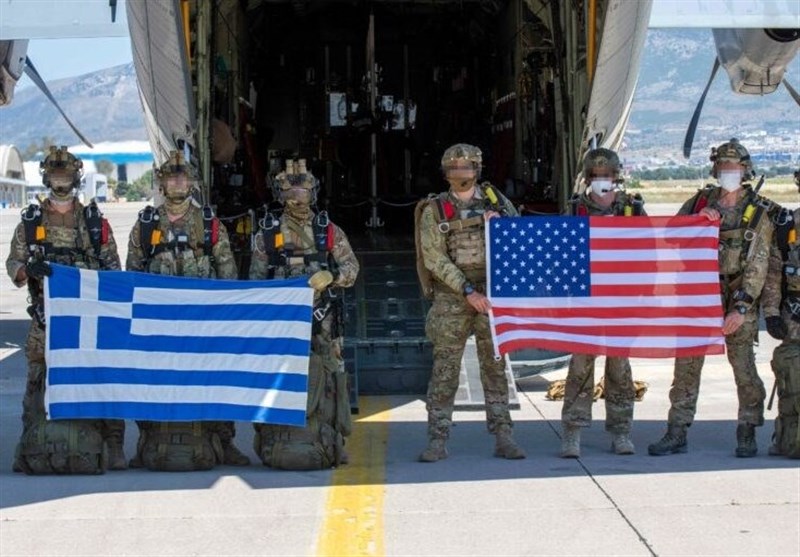
Strategic Council Online – Opinion: The joint visit of the Greek minister of defense and the US ambassador to Greece to the Greek port of Alexandroupolis, where Atlantic Resolve 2021 operation is underway to transfer US troops to Eastern Europe, shows that this port has been turned to one of the focal points of Greek-US bilateral cooperation in defense sector.
Mahmoud Fazeli – Analyst of international area
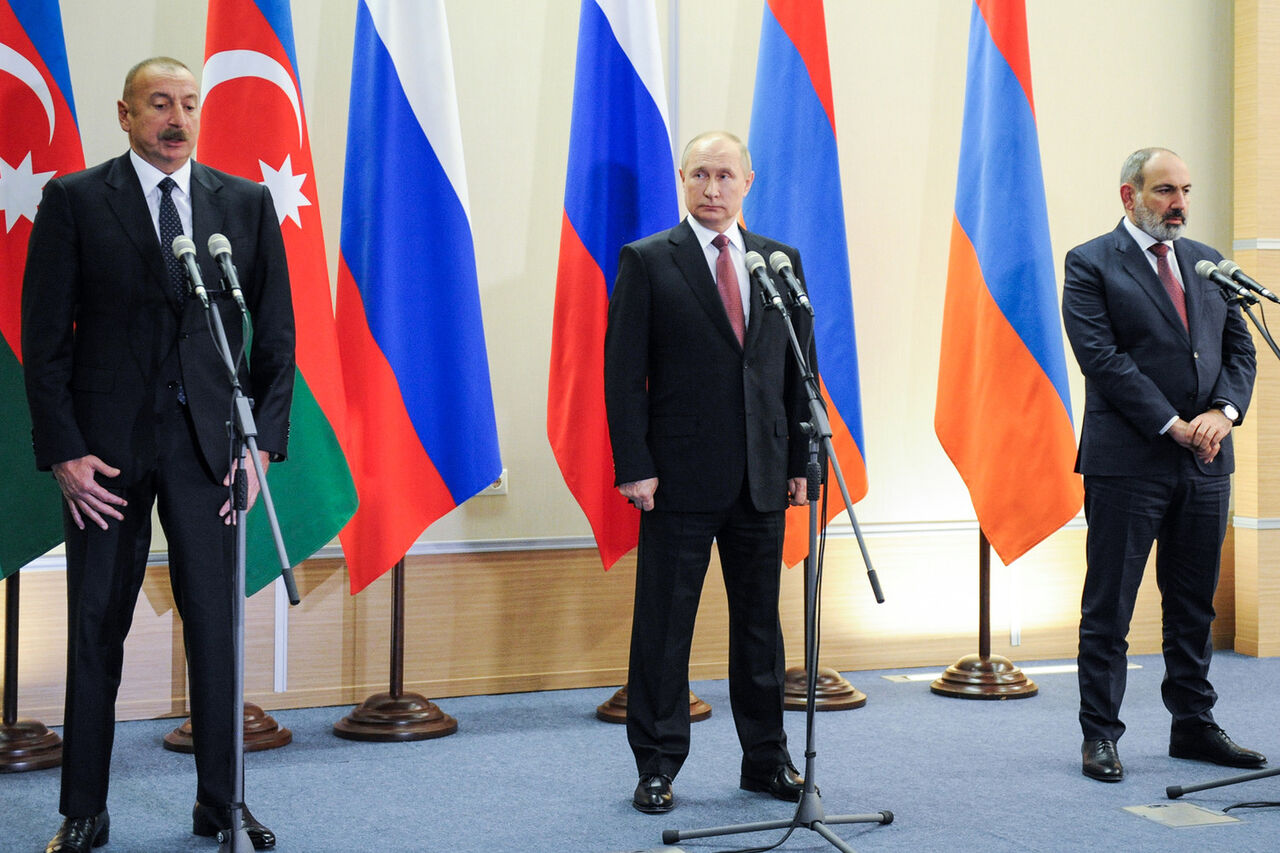
Strategic Council Online – Interview: Senior researcher on Central Asia and Caucasus affairs, saying that approvals of the Armenia-Azerbaijan Boundary Commission should not be a prelude to changing the geographical borders in the region, noted: Iran can assist the peace talks in Karabakh so that by stabilizing borders and establishing calm measures can be taken for the future development of the region.
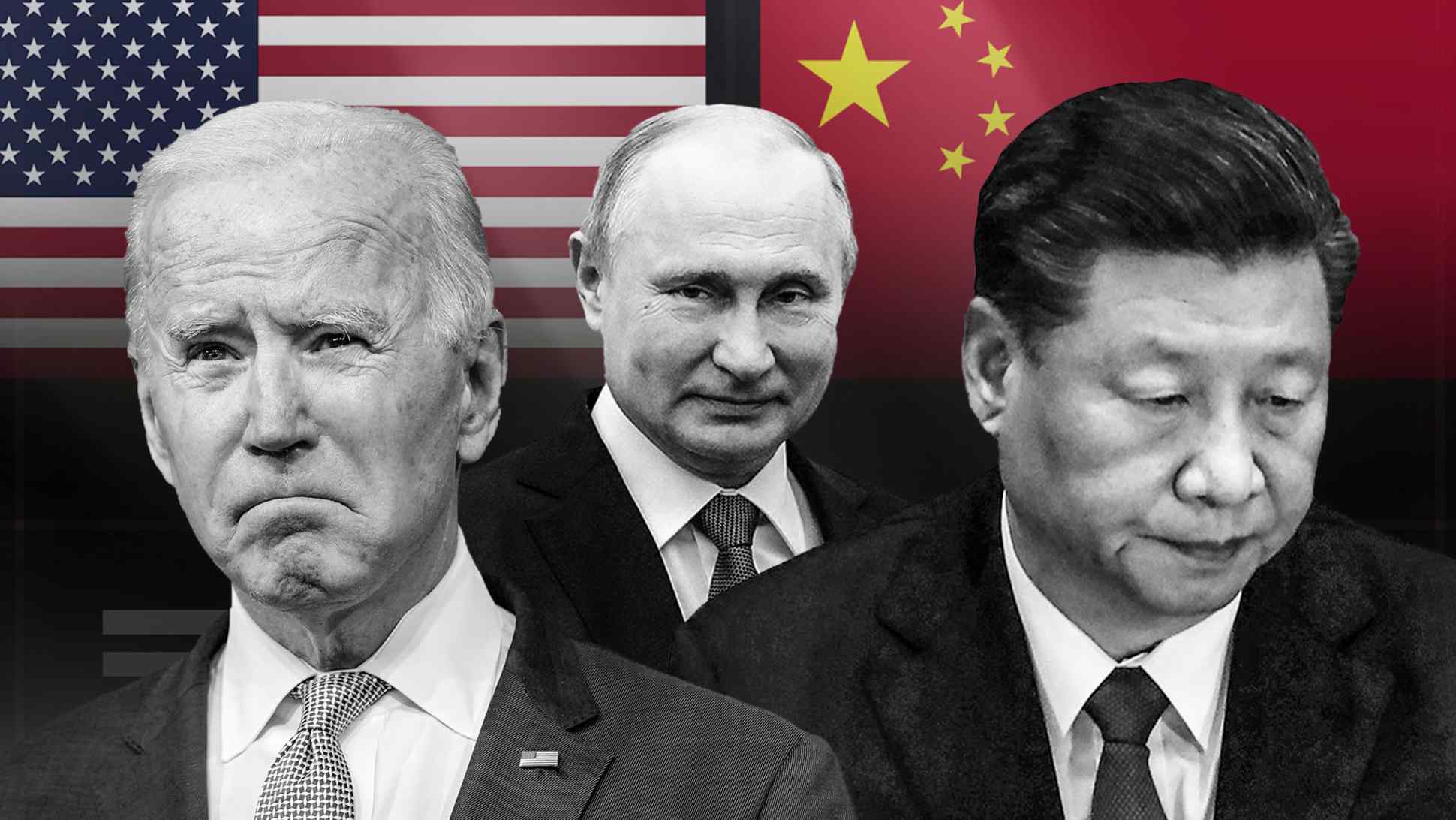
Strategic Council Online- Interview: Having stated that at present circumstance we witness a cold war between China and the U.S. and to a lesser degree between Russia and the U.S., an analyst of international affairs said:” the competition that exists between the U.S. on one side and Russia and China on the other side, will form the aspects of the future order which the world and the country will face.

Strategic Council Online – Opinion: Given the US unilateral sanctions, can trade with the neighboring countries on the basis of national currencies be considered as a solution to mitigate effects of the sanctions?
Reza Majidzadeh – Simorgh Development Working Group, Pasargad Millennium Plan Think Tank
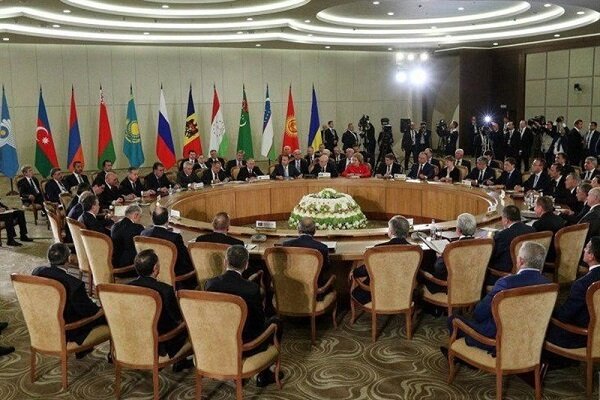
Strategic Council Online- Opinion: In addition to bilateral relations, regionalism as well as linking the economic interests of Northern neighbors to Iran’s potentials can bring more achievements.
Mehdi Khoorsand, Expert on China and Eurasia affairs
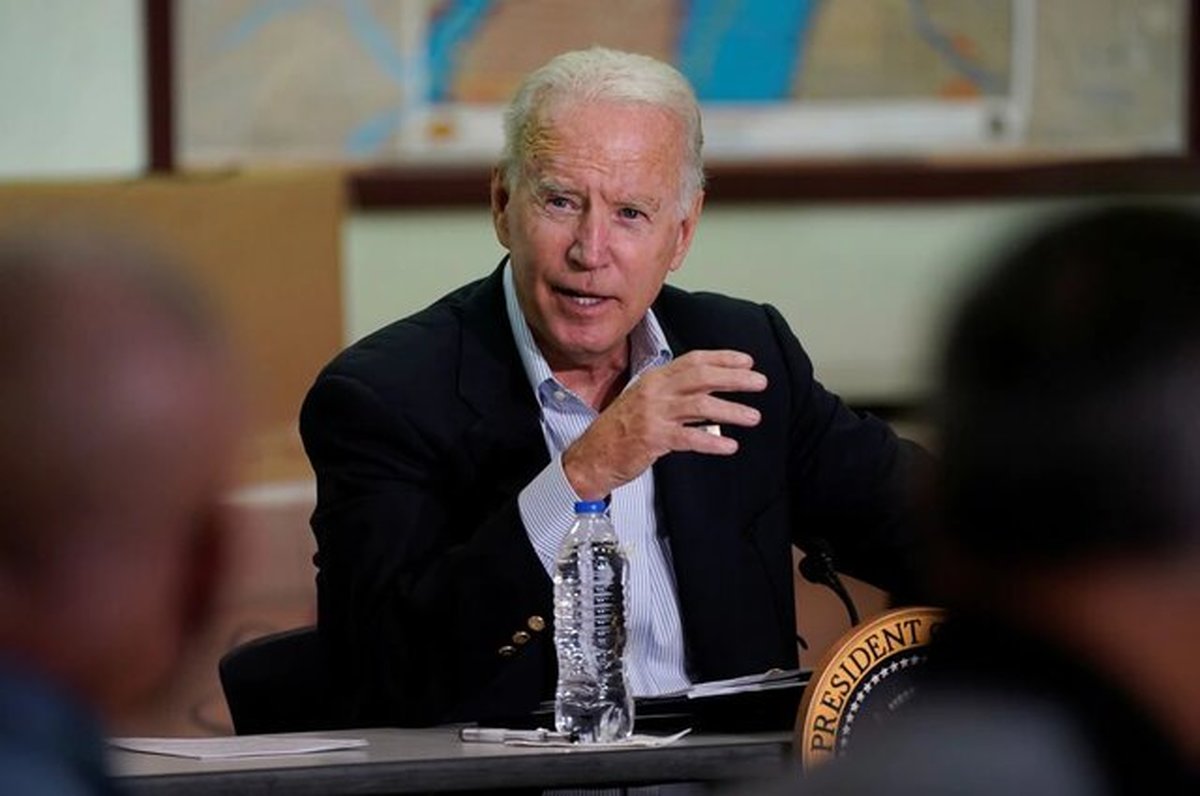
Strategic Council Online – Interview: An expert on US affairs, commenting on the US President Joe Biden’s recent claims that one of the reasons for the US military presence outside the borders, including deployment of US troops in the Persian Gulf region such as Saudi Arabia, Iraq and Syria, is Iran’s regional activities, said: Although there are talks over a change in Washington’s approach in the Middle East region in line with implementation of Biden’s stated policies in that region, in general, it seems that the main foundations of the US foreign policy in the region have not changed much, rather the process of implementation of its policies has been subject to changes.

Strategic Council Online – Interview: An analyst of West Asia affairs, stressing that resignation of the Lebanese minister of information will not resolve the Riyadh-Beirut issues, said: Saudi aid is a function of Riyadh’s policies in Beirut, that is to say an attempt to isolate the Hezbollah and the Axis of Resistance.
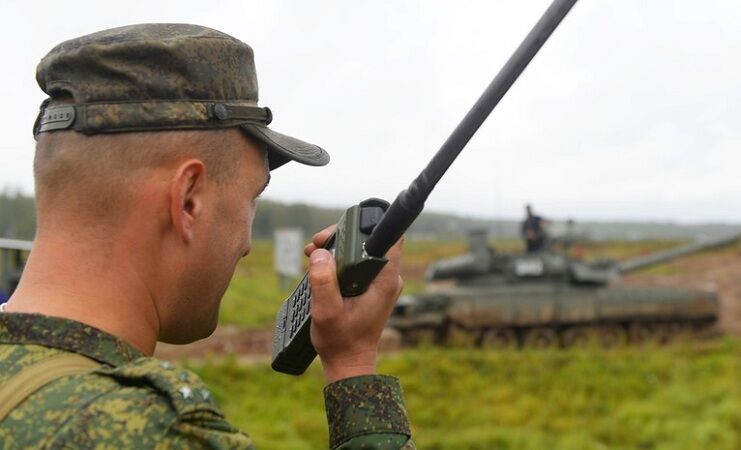
Strategic Council Online – Opinion: Seven years after Russia’s military action against Ukraine in 2014 and annexation of the Crimean peninsula to the mainland Russia, the country’s recent military rally along the border with Ukraine and holding of numerous exercises by the two countries, once again has increased the likelihood of Russian military action against Ukraine.
Hossein Sayyahi – Researcher on international affairs
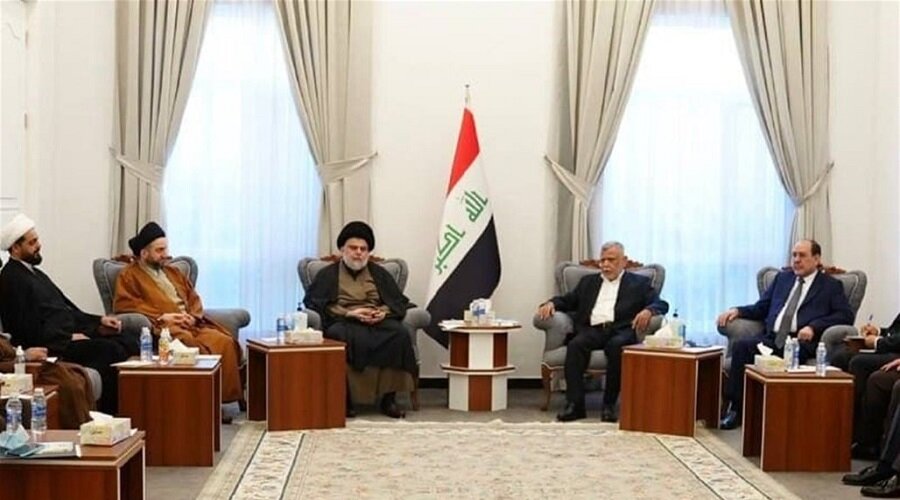
Strategic Council Online- Interview: An expert on Iraqi commented on the recent meeting held among Shi’ite parties inside Iraq at Al-Ameri’s house and said:” It seems that timewise, as we distance from the election, Iraqi trends and political groups of the country cope with the results of the election better than ever in the past and go ahead towards political counselling to form the cabinet and select the heads of three powers i.e. President, Speaker of the Parliament and Prime Minister”.
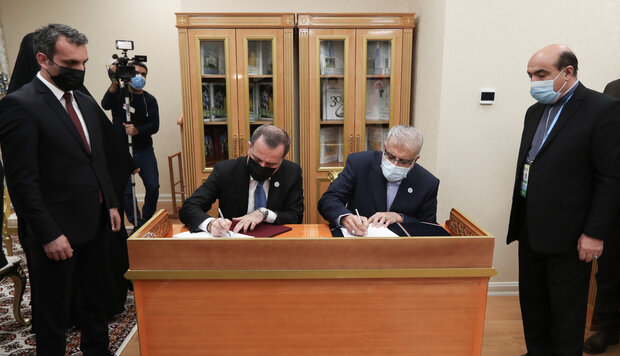
Strategic Council Online – Opinion: The importance, opportunities and benefits that Iran’s gas swap agreement with Turkmenistan and the Republic of Azerbaijan enjoys have caused concern for the Zionist regime, as the agreement is in opposition to the Israeli plans in the region that seek to destroy and weaken Iran’s foreign relations, especially with Central Asian and South Caucasus countries.
Barsam Mohammadi – Expert on regional affairs
Strategic Council Online – Note: Iran has done more than its share for the nuclear non-proliferation regime.
Strategic Council Online: The President of the Strategic Council on Foreign Relations stated: “The US State Department spokesperson, after my interview with Al Jazeera, reiterated their past remarks, stating that they won’t allow Iran to build nuclear weapons, but ultimately said diplomacy is the best approach. Yes, we too prefer diplomacy since based on the Fatwa of our Supreme Leader are not for nuclear weapons; rather, we are advocates of diplomacy to make the Middle East a nuclear-free region. But, in case the Israeli regime threatens us with nuclear weapons, we surely cannot sit idle and wait for permission from others.”
Strategic Council Online – Opinion: The strategic Strait of Bab al-Mandab and the Red Sea have recently faced serious problems and crises due to the Gaza war. This is because of the protectionist approach of the Yemeni army forces toward Palestine, which, since the beginning of the Israeli regime’s attacks on the Gaza Strip, has included attacks on ships bound for or from the origin of the regime in the Red Sea.
They said they will continue their attacks until the Israeli regime’s military aggression in the Gaza Strip ends. The United States, as the most important supporter of the Israeli regime, was the first country to respond to this policy of Yemeni army forces and tried to form a global coalition to counter these attacks under the cover of supporting freedom of navigation, which, of course, failed because of conflicts of interests of Western countries and ended in the actions of the US and British attacks on positions in Yemen. Of course, although European countries were not seriously involved in the American coalition, they have numerous and complex interests in this inflammatory, and as a result, have adopted a particular and independent approach.
Dr. Mohammad Mehdi Mazaheri – University Professor
Strategic Council Online – Interview: An expert on regional issues said Qatari authorities will definitely resist Western pressure to expel Hamas leaders from their territory, and probably the United States will not move towards a zero-hundred equation in this regard because if the Hamas leaders remain in Qatar, which is an ally of the United States, is better than moving to a country outside the power of the United States to exert pressure.
Strategic Council Online – Opinion: Student protests in America take on new dimensions every day.
Because the university enjoys higher public trust and social capital than other civil and social institutions and is, therefore, more effective, the current protests put the U.S. government in a “difficult situation” that is clear in the statements of current and former U.S. officials.
Hamid Khoshayand – International Affairs Expert
Strategic Council Online: The 3rd Iranian-Arab Dialogue Conference, titled “For Cooperation and Interaction,” will be inaugurated on April 23rd in Tehran, hosted by the Strategic Council on Foreign Relations.
Strategic Council Online – Interview: An expert on Caucasus issues said that Swedish Foreign Minister Tobias Billström recently announced that EU states plan to include the ban on the supply of liquefied natural gas (LNG) in the sanctions against Russia.
Strategic Council Online—Interview: An expert on strategic issues said: The US Navy has put a project on the agenda to convert surplus oil platforms into mobile missile defense bases in the Pacific Ocean and face China’s threats. These platforms are supposed to be deployed in response to China’s growing missile threats in the Pacific region. Platforms converted into missile defense bases are expected to play an important role in increasing US air defense capabilities and assisting in the country’s strike missions.


Strategic Council Online – Opinion: The joint visit of the Greek minister of defense and the US ambassador to Greece to the Greek port of Alexandroupolis, where Atlantic Resolve 2021 operation is underway to transfer US troops to Eastern Europe, shows that this port has been turned to one of the focal points of Greek-US bilateral cooperation in defense sector.
Mahmoud Fazeli – Analyst of international area

Strategic Council Online – Interview: Senior researcher on Central Asia and Caucasus affairs, saying that approvals of the Armenia-Azerbaijan Boundary Commission should not be a prelude to changing the geographical borders in the region, noted: Iran can assist the peace talks in Karabakh so that by stabilizing borders and establishing calm measures can be taken for the future development of the region.

Strategic Council Online- Interview: Having stated that at present circumstance we witness a cold war between China and the U.S. and to a lesser degree between Russia and the U.S., an analyst of international affairs said:” the competition that exists between the U.S. on one side and Russia and China on the other side, will form the aspects of the future order which the world and the country will face.

Strategic Council Online – Opinion: Given the US unilateral sanctions, can trade with the neighboring countries on the basis of national currencies be considered as a solution to mitigate effects of the sanctions?
Reza Majidzadeh – Simorgh Development Working Group, Pasargad Millennium Plan Think Tank

Strategic Council Online- Opinion: In addition to bilateral relations, regionalism as well as linking the economic interests of Northern neighbors to Iran’s potentials can bring more achievements.
Mehdi Khoorsand, Expert on China and Eurasia affairs

Strategic Council Online – Interview: An expert on US affairs, commenting on the US President Joe Biden’s recent claims that one of the reasons for the US military presence outside the borders, including deployment of US troops in the Persian Gulf region such as Saudi Arabia, Iraq and Syria, is Iran’s regional activities, said: Although there are talks over a change in Washington’s approach in the Middle East region in line with implementation of Biden’s stated policies in that region, in general, it seems that the main foundations of the US foreign policy in the region have not changed much, rather the process of implementation of its policies has been subject to changes.

Strategic Council Online – Interview: An analyst of West Asia affairs, stressing that resignation of the Lebanese minister of information will not resolve the Riyadh-Beirut issues, said: Saudi aid is a function of Riyadh’s policies in Beirut, that is to say an attempt to isolate the Hezbollah and the Axis of Resistance.

Strategic Council Online – Opinion: Seven years after Russia’s military action against Ukraine in 2014 and annexation of the Crimean peninsula to the mainland Russia, the country’s recent military rally along the border with Ukraine and holding of numerous exercises by the two countries, once again has increased the likelihood of Russian military action against Ukraine.
Hossein Sayyahi – Researcher on international affairs

Strategic Council Online- Interview: An expert on Iraqi commented on the recent meeting held among Shi’ite parties inside Iraq at Al-Ameri’s house and said:” It seems that timewise, as we distance from the election, Iraqi trends and political groups of the country cope with the results of the election better than ever in the past and go ahead towards political counselling to form the cabinet and select the heads of three powers i.e. President, Speaker of the Parliament and Prime Minister”.

Strategic Council Online – Opinion: The importance, opportunities and benefits that Iran’s gas swap agreement with Turkmenistan and the Republic of Azerbaijan enjoys have caused concern for the Zionist regime, as the agreement is in opposition to the Israeli plans in the region that seek to destroy and weaken Iran’s foreign relations, especially with Central Asian and South Caucasus countries.
Barsam Mohammadi – Expert on regional affairs

Strategic Council Online – Opinion: The joint visit of the Greek minister of defense and the US ambassador to Greece to the Greek port of Alexandroupolis, where Atlantic Resolve 2021 operation is underway to transfer US troops to Eastern Europe, shows that this port has been turned to one of the focal points of Greek-US bilateral cooperation in defense sector.
Mahmoud Fazeli – Analyst of international area

Strategic Council Online – Interview: Senior researcher on Central Asia and Caucasus affairs, saying that approvals of the Armenia-Azerbaijan Boundary Commission should not be a prelude to changing the geographical borders in the region, noted: Iran can assist the peace talks in Karabakh so that by stabilizing borders and establishing calm measures can be taken for the future development of the region.

Strategic Council Online- Interview: Having stated that at present circumstance we witness a cold war between China and the U.S. and to a lesser degree between Russia and the U.S., an analyst of international affairs said:” the competition that exists between the U.S. on one side and Russia and China on the other side, will form the aspects of the future order which the world and the country will face.

Strategic Council Online – Opinion: Given the US unilateral sanctions, can trade with the neighboring countries on the basis of national currencies be considered as a solution to mitigate effects of the sanctions?
Reza Majidzadeh – Simorgh Development Working Group, Pasargad Millennium Plan Think Tank

Strategic Council Online- Opinion: In addition to bilateral relations, regionalism as well as linking the economic interests of Northern neighbors to Iran’s potentials can bring more achievements.
Mehdi Khoorsand, Expert on China and Eurasia affairs

Strategic Council Online – Interview: An expert on US affairs, commenting on the US President Joe Biden’s recent claims that one of the reasons for the US military presence outside the borders, including deployment of US troops in the Persian Gulf region such as Saudi Arabia, Iraq and Syria, is Iran’s regional activities, said: Although there are talks over a change in Washington’s approach in the Middle East region in line with implementation of Biden’s stated policies in that region, in general, it seems that the main foundations of the US foreign policy in the region have not changed much, rather the process of implementation of its policies has been subject to changes.

Strategic Council Online – Interview: An analyst of West Asia affairs, stressing that resignation of the Lebanese minister of information will not resolve the Riyadh-Beirut issues, said: Saudi aid is a function of Riyadh’s policies in Beirut, that is to say an attempt to isolate the Hezbollah and the Axis of Resistance.

Strategic Council Online – Opinion: Seven years after Russia’s military action against Ukraine in 2014 and annexation of the Crimean peninsula to the mainland Russia, the country’s recent military rally along the border with Ukraine and holding of numerous exercises by the two countries, once again has increased the likelihood of Russian military action against Ukraine.
Hossein Sayyahi – Researcher on international affairs

Strategic Council Online- Interview: An expert on Iraqi commented on the recent meeting held among Shi’ite parties inside Iraq at Al-Ameri’s house and said:” It seems that timewise, as we distance from the election, Iraqi trends and political groups of the country cope with the results of the election better than ever in the past and go ahead towards political counselling to form the cabinet and select the heads of three powers i.e. President, Speaker of the Parliament and Prime Minister”.

Strategic Council Online – Opinion: The importance, opportunities and benefits that Iran’s gas swap agreement with Turkmenistan and the Republic of Azerbaijan enjoys have caused concern for the Zionist regime, as the agreement is in opposition to the Israeli plans in the region that seek to destroy and weaken Iran’s foreign relations, especially with Central Asian and South Caucasus countries.
Barsam Mohammadi – Expert on regional affairs
Strategic Council Online – Note: Iran has done more than its share for the nuclear non-proliferation regime.
Strategic Council Online: The President of the Strategic Council on Foreign Relations stated: “The US State Department spokesperson, after my interview with Al Jazeera, reiterated their past remarks, stating that they won’t allow Iran to build nuclear weapons, but ultimately said diplomacy is the best approach. Yes, we too prefer diplomacy since based on the Fatwa of our Supreme Leader are not for nuclear weapons; rather, we are advocates of diplomacy to make the Middle East a nuclear-free region. But, in case the Israeli regime threatens us with nuclear weapons, we surely cannot sit idle and wait for permission from others.”
Strategic Council Online – Opinion: The strategic Strait of Bab al-Mandab and the Red Sea have recently faced serious problems and crises due to the Gaza war. This is because of the protectionist approach of the Yemeni army forces toward Palestine, which, since the beginning of the Israeli regime’s attacks on the Gaza Strip, has included attacks on ships bound for or from the origin of the regime in the Red Sea.
They said they will continue their attacks until the Israeli regime’s military aggression in the Gaza Strip ends. The United States, as the most important supporter of the Israeli regime, was the first country to respond to this policy of Yemeni army forces and tried to form a global coalition to counter these attacks under the cover of supporting freedom of navigation, which, of course, failed because of conflicts of interests of Western countries and ended in the actions of the US and British attacks on positions in Yemen. Of course, although European countries were not seriously involved in the American coalition, they have numerous and complex interests in this inflammatory, and as a result, have adopted a particular and independent approach.
Dr. Mohammad Mehdi Mazaheri – University Professor
Strategic Council Online – Interview: An expert on regional issues said Qatari authorities will definitely resist Western pressure to expel Hamas leaders from their territory, and probably the United States will not move towards a zero-hundred equation in this regard because if the Hamas leaders remain in Qatar, which is an ally of the United States, is better than moving to a country outside the power of the United States to exert pressure.
Strategic Council Online – Opinion: Student protests in America take on new dimensions every day.
Because the university enjoys higher public trust and social capital than other civil and social institutions and is, therefore, more effective, the current protests put the U.S. government in a “difficult situation” that is clear in the statements of current and former U.S. officials.
Hamid Khoshayand – International Affairs Expert
Strategic Council Online: The 3rd Iranian-Arab Dialogue Conference, titled “For Cooperation and Interaction,” will be inaugurated on April 23rd in Tehran, hosted by the Strategic Council on Foreign Relations.
Strategic Council Online – Interview: An expert on Caucasus issues said that Swedish Foreign Minister Tobias Billström recently announced that EU states plan to include the ban on the supply of liquefied natural gas (LNG) in the sanctions against Russia.
Strategic Council Online—Interview: An expert on strategic issues said: The US Navy has put a project on the agenda to convert surplus oil platforms into mobile missile defense bases in the Pacific Ocean and face China’s threats. These platforms are supposed to be deployed in response to China’s growing missile threats in the Pacific region. Platforms converted into missile defense bases are expected to play an important role in increasing US air defense capabilities and assisting in the country’s strike missions.


Strategic Council Online – Opinion: The joint visit of the Greek minister of defense and the US ambassador to Greece to the Greek port of Alexandroupolis, where Atlantic Resolve 2021 operation is underway to transfer US troops to Eastern Europe, shows that this port has been turned to one of the focal points of Greek-US bilateral cooperation in defense sector.
Mahmoud Fazeli – Analyst of international area

Strategic Council Online – Interview: Senior researcher on Central Asia and Caucasus affairs, saying that approvals of the Armenia-Azerbaijan Boundary Commission should not be a prelude to changing the geographical borders in the region, noted: Iran can assist the peace talks in Karabakh so that by stabilizing borders and establishing calm measures can be taken for the future development of the region.

Strategic Council Online- Interview: Having stated that at present circumstance we witness a cold war between China and the U.S. and to a lesser degree between Russia and the U.S., an analyst of international affairs said:” the competition that exists between the U.S. on one side and Russia and China on the other side, will form the aspects of the future order which the world and the country will face.

Strategic Council Online – Opinion: Given the US unilateral sanctions, can trade with the neighboring countries on the basis of national currencies be considered as a solution to mitigate effects of the sanctions?
Reza Majidzadeh – Simorgh Development Working Group, Pasargad Millennium Plan Think Tank

Strategic Council Online- Opinion: In addition to bilateral relations, regionalism as well as linking the economic interests of Northern neighbors to Iran’s potentials can bring more achievements.
Mehdi Khoorsand, Expert on China and Eurasia affairs

Strategic Council Online – Interview: An expert on US affairs, commenting on the US President Joe Biden’s recent claims that one of the reasons for the US military presence outside the borders, including deployment of US troops in the Persian Gulf region such as Saudi Arabia, Iraq and Syria, is Iran’s regional activities, said: Although there are talks over a change in Washington’s approach in the Middle East region in line with implementation of Biden’s stated policies in that region, in general, it seems that the main foundations of the US foreign policy in the region have not changed much, rather the process of implementation of its policies has been subject to changes.

Strategic Council Online – Interview: An analyst of West Asia affairs, stressing that resignation of the Lebanese minister of information will not resolve the Riyadh-Beirut issues, said: Saudi aid is a function of Riyadh’s policies in Beirut, that is to say an attempt to isolate the Hezbollah and the Axis of Resistance.

Strategic Council Online – Opinion: Seven years after Russia’s military action against Ukraine in 2014 and annexation of the Crimean peninsula to the mainland Russia, the country’s recent military rally along the border with Ukraine and holding of numerous exercises by the two countries, once again has increased the likelihood of Russian military action against Ukraine.
Hossein Sayyahi – Researcher on international affairs

Strategic Council Online- Interview: An expert on Iraqi commented on the recent meeting held among Shi’ite parties inside Iraq at Al-Ameri’s house and said:” It seems that timewise, as we distance from the election, Iraqi trends and political groups of the country cope with the results of the election better than ever in the past and go ahead towards political counselling to form the cabinet and select the heads of three powers i.e. President, Speaker of the Parliament and Prime Minister”.

Strategic Council Online – Opinion: The importance, opportunities and benefits that Iran’s gas swap agreement with Turkmenistan and the Republic of Azerbaijan enjoys have caused concern for the Zionist regime, as the agreement is in opposition to the Israeli plans in the region that seek to destroy and weaken Iran’s foreign relations, especially with Central Asian and South Caucasus countries.
Barsam Mohammadi – Expert on regional affairs
Strategic Council Online – Note: Iran has done more than its share for the nuclear non-proliferation regime.
Strategic Council Online: The President of the Strategic Council on Foreign Relations stated: “The US State Department spokesperson, after my interview with Al Jazeera, reiterated their past remarks, stating that they won’t allow Iran to build nuclear weapons, but ultimately said diplomacy is the best approach. Yes, we too prefer diplomacy since based on the Fatwa of our Supreme Leader are not for nuclear weapons; rather, we are advocates of diplomacy to make the Middle East a nuclear-free region. But, in case the Israeli regime threatens us with nuclear weapons, we surely cannot sit idle and wait for permission from others.”
Strategic Council Online – Opinion: The strategic Strait of Bab al-Mandab and the Red Sea have recently faced serious problems and crises due to the Gaza war. This is because of the protectionist approach of the Yemeni army forces toward Palestine, which, since the beginning of the Israeli regime’s attacks on the Gaza Strip, has included attacks on ships bound for or from the origin of the regime in the Red Sea.
They said they will continue their attacks until the Israeli regime’s military aggression in the Gaza Strip ends. The United States, as the most important supporter of the Israeli regime, was the first country to respond to this policy of Yemeni army forces and tried to form a global coalition to counter these attacks under the cover of supporting freedom of navigation, which, of course, failed because of conflicts of interests of Western countries and ended in the actions of the US and British attacks on positions in Yemen. Of course, although European countries were not seriously involved in the American coalition, they have numerous and complex interests in this inflammatory, and as a result, have adopted a particular and independent approach.
Dr. Mohammad Mehdi Mazaheri – University Professor
Strategic Council Online – Interview: An expert on regional issues said Qatari authorities will definitely resist Western pressure to expel Hamas leaders from their territory, and probably the United States will not move towards a zero-hundred equation in this regard because if the Hamas leaders remain in Qatar, which is an ally of the United States, is better than moving to a country outside the power of the United States to exert pressure.
Strategic Council Online – Opinion: Student protests in America take on new dimensions every day.
Because the university enjoys higher public trust and social capital than other civil and social institutions and is, therefore, more effective, the current protests put the U.S. government in a “difficult situation” that is clear in the statements of current and former U.S. officials.
Hamid Khoshayand – International Affairs Expert
Strategic Council Online: The 3rd Iranian-Arab Dialogue Conference, titled “For Cooperation and Interaction,” will be inaugurated on April 23rd in Tehran, hosted by the Strategic Council on Foreign Relations.
Strategic Council Online – Interview: An expert on Caucasus issues said that Swedish Foreign Minister Tobias Billström recently announced that EU states plan to include the ban on the supply of liquefied natural gas (LNG) in the sanctions against Russia.
Strategic Council Online—Interview: An expert on strategic issues said: The US Navy has put a project on the agenda to convert surplus oil platforms into mobile missile defense bases in the Pacific Ocean and face China’s threats. These platforms are supposed to be deployed in response to China’s growing missile threats in the Pacific region. Platforms converted into missile defense bases are expected to play an important role in increasing US air defense capabilities and assisting in the country’s strike missions.
